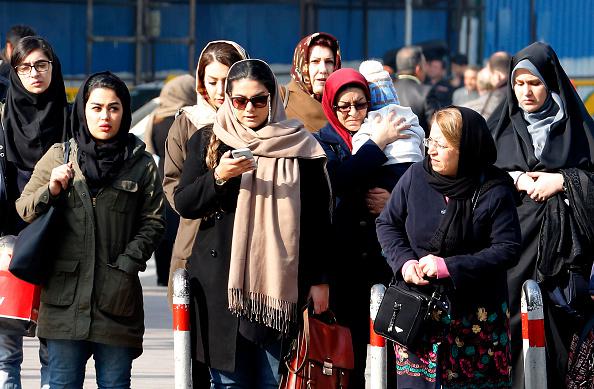Gruesome Femicide in Iran
Headlines about the beheading of 17-year-old Ghazaleh (Mona) Heydari shook Iranian society on Saturday.

The police have arrested the victim’s husband and brother-in-law and stated that the motive was a “family dispute.” Heydari, who lived in Khuzestan province, was reportedly married off to her cousin at the age of 12 and had a three-year-old child. A source close to the victim reported that Heydari had attempted to escape domestic abuse by fleeing to Turkey, but close relatives brought her back to Iran. Media and rights groups reported that a man believed to be her husband was filmed roaming the streets of Ahvaz city in Khuzestan province holding a knife and Heydari's head. Heydari is one more victim in a string of femicides in Iran. In Khuzestan province alone, a BBC Persian report showed that murders labeled in investigations as “honor killings” constituted around 39 percent of all murders between 2013 and 2017. Under Iranian law, if the murdered victims’ families do not request “qisas,” a concept allowing retribution in kind and leading to a death sentence, authorities can still sentence a murderer to up to 10 years in prison. But in many femicide cases, families are related to both the victim and murderer, and they often do not press for the harshest penalties. Prosecutors often do not seek longer sentences, and judges release such convicts after they spent only a few years in prison. Women’s rights activists in Iran have campaigned for almost two decades for a law on violence against women, and authorities have been working on a draft version for the past eight years. Last year a draft law on “Protection, Dignity and Security of Women against Violence” was introduced to parliament.
The law includes positive provisions, including obliging officials to expedite investigations into domestic violence complaints, forming special police units to investigate these abuses, establishing restraining orders, and creating a fund to support victims of domestic abuse.
The law, however, has numerous gaps, including failing to criminalize marital rape or child marriage. It also does not provide a clear definition of domestic violence. The Iranian administration and parliament should prioritize reforming the draft law on violence against women, bringing it in line with international standards before passing it. It should not take an egregious crime like a beheading for them to take action, and failing to move the law forward will only endanger the lives of more women and girls. Maya Ghazi is a pseudonym used to protect the identity of a Human Rights Watch staff member.
Read the full article at the original website
References:
- https://www.radiofarda.com/a/honor-killings-iran/31689621.html
- https://www.ilna.news/%D8%A8%D8%AE%D8%B4-%D8%A7%D8%B3%D8%AA%D8%A7%D9%86-%D9%87%D8%A7-15/1192555-%D9%85%D8%B1%D8%AF-%D9%87%D9%85%D8%B3%D8%B1%DA%A9%D8%B4-%D8%AF%D8%B1-%D8%A7%D9%87%D9%88%D8%A7%D8%B2-%D8%AF%D8%B3%D8%AA%DA%AF%DB%8C%D8%B1-%D8%B4%D8%AF-%D8%B3%D8%B1-%D9%85%D9%82%D8%AA%D9%88%D9%84-%D8%B1%D8%A7-%D8%A8%D8%B1%DB%8C%D8%AF%D9%87-%D8%AF%D8%B1-%D8%B4%D9%87%D8%B1-%DA%86%D8%B1%D8%AE%D8%A7%D9%86%D8%AF%D9%87-%D8%A8%D9%88%D8%AF%D9%86%D8%AF
- https://www.bbc.com/persian/iran-60278910
- https://www.radiozamaneh.com/703236
- https://iranhumanrights.org/2022/02/decapitated-child-bride-highlights-irans-lack-of-protections-for-girls-and-women/
- https://www.etemadonline.com/%D8%A8%D8%AE%D8%B4-%D8%A7%D8%AC%D8%AA%D9%85%D8%A7%D8%B9%DB%8C-23/536828-%D9%82%D8%AA%D9%84-%D8%B2%D9%86-%D8%A7%D9%87%D9%88%D8%A7%D8%B2%DB%8C-%D9%81%D8%AC%DB%8C%D8%B9-%D8%AA%D8%B1%DB%8C%D9%86-%D9%86%D9%88%D8%B9-%D9%82%D8%AA%D9%84-%D9%86%D8%A7%D9%85%D9%88%D8%B3%DB%8C-%D8%A7%D8%B3%D8%AA
- https://www.hrw.org/news/2020/12/04/iran-adopt-draft-law-protect-women
